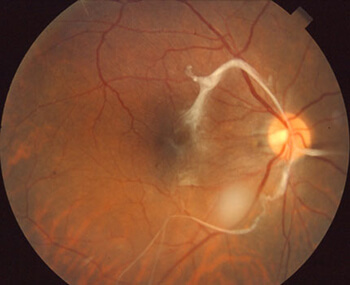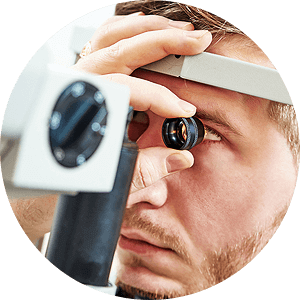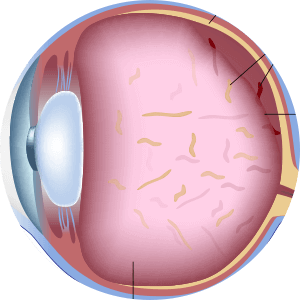Manhattan Macular Pucker Treatment
 The macula is the part of the retina responsible for sharp, central vision that we use when reading, driving and seeing detail. A macular pucker is formed by scar tissue around the eye’s macula. A macular pucker can cause blurred vision and distorted central vision. A macular pucker is not the same as age-related macular degeneration. Although similar, a macular pucker is also different from a macular hole.
The macula is the part of the retina responsible for sharp, central vision that we use when reading, driving and seeing detail. A macular pucker is formed by scar tissue around the eye’s macula. A macular pucker can cause blurred vision and distorted central vision. A macular pucker is not the same as age-related macular degeneration. Although similar, a macular pucker is also different from a macular hole.
A macular pucker is often not progressive, meaning that it does not usually get worse, and vision is stable although blurry. Usually, a patient will have a macular pucker in only one eye but can affect the other eye later on.
How Do You Get a Macular Pucker?
A macular pucker is caused by the tugging on the retina due to a shrinking vitreous. The vitreous is the gel-like substance that fills the center of the eye, and it attached to the retina. As we age, the vitreous begins to shrink or shrivel, causing it to separate from the retina. When it separates, it can cause microscopic damage to the retina. As the retina heals itself, the resulting scar tissue can cause a macular pucker.
What are the Symptoms of a Macular Pucker?
Vision loss from a macular pucker can vary. One patient can experience no or very little vision loss, while another may experience severe vision loss, although uncommon. The most common symptoms are blurred vision, distorted vision, difficulty seeing small print, and perhaps a small gray blind spot in central vision.
How is a Macular Pucker Treated?
Macular pucker often requires no treatment. In cases of mild blurriness and distortion, no treatment is necessary. Patients generally adjust to the mild visual distortion, since it does not affect daily activities, such as reading or driving. No medications, supplements, or eye drops will improve vision distorted by macular pucker. Rarely, vision can deteriorate to the point that it affects daily activities. When this happens, surgery is recommended. The procedure is called a vitrectomy, in which the vitreous gel is removed to prevent it from pulling on the retina. The vitreous is replaced with a salt solution. The scar tissue which causes the macular pucker is removed. This usually will improve vision, but it will not go back to normal.
If you have any questions, or if you are experiencing the symptoms of a macula pucker, please schedule an appointment with one of the retina specialists at Angioletti Retina. Call us to schedule your appointment today.



